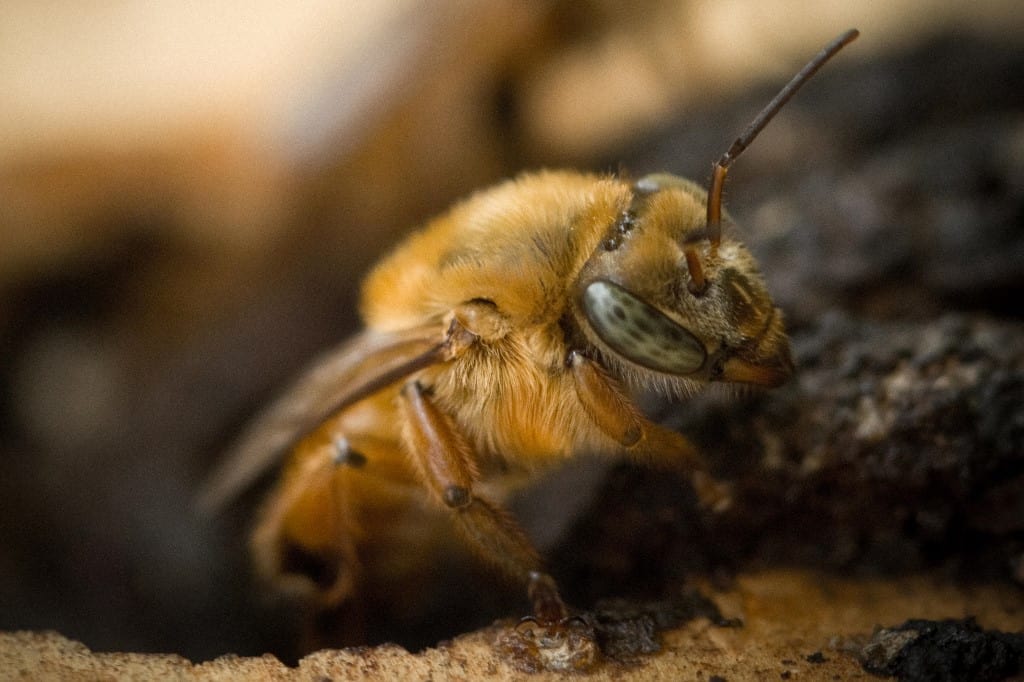On World Bee Day, the Costa Rican environmental organization Bloque Verde issued a crucial call for action, demanding greater protection for bees.
These invaluable insects are facing a grave threat from toxic products such as fipronil and neonicotinoids, which have caused extensive intoxications, resulting in the loss of millions of bees, irreparable damage to biodiversity, and contamination of ecosystems. Alarming statistics reveal a significant decline in bee populations, with the potential of Costa Rica running out of bees by 2035 if the current rate persists.
It is imperative that immediate measures be taken to safeguard these vital pollinators and the environment they sustain.
The Toll on Bee Population and Ecosystems
According to the National Beekeeping Promotion Chamber, the Los Santos area alone witnessed the loss of 2,200 hives between 2010 and 2020. Shockingly, approximately 30 major bee poisonings were recorded during this period, resulting in the death of around 100 million bees.
Such devastating losses not only harm bee populations but also have far-reaching consequences for the delicate balance of ecosystems. Bees play a critical role in pollinating various crops, including avocado, chayote, coffee, tomato, melon, and watermelon, ensuring food security and supporting the livelihoods of 1,500 families engaged in beekeeping nationwide.
The Need to Ban Fipronil and Neonicotinoids
Fipronil, known to be highly hazardous to bees, insects, and agricultural ecosystems, has already been banned in over 30 countries, including the European Union. However, in Costa Rica, its use in agriculture remains unrestricted despite the severe ecological and economic consequences.
In 2019, the Constitutional Chamber directed the Ministry of Agriculture and Livestock (MAG) to conduct a scientific study on the effects of agrochemicals containing neonicotinoids, further highlighting the urgency of the situation.
Even with subsequent recommendations from the Ministries of Health, Agriculture, and Livestock (MAG) and Environment and Energy (MINAE) to prohibit the use of Fipronil, Executive Decree No. 43767-S-MINAE issued by the current government in November 2022 fell short by only banning its industrial use.
The Value of Bees and the Responsibility to Act
Costa Rica boasts a rich diversity of more than 650 bee species, including 58 native stingless bee species, as confirmed by the Tropical Bee Research Center (CINAT) and the National University (UNA).
These bees are vital for conserving tropical ecosystems, ensuring pollination of a wide range of plants, and maintaining food security. Recognizing the importance of beekeeping, Costa Rica has declared it as a matter of ‘public interest’ and established National Bee Day. Therefore, the country has a moral and legal obligation to take swift action to protect bees and the environment they contribute to.
Final Thoughts
The decline in global bee populations is a cause for grave concern, demanding immediate attention. Costa Rica, renowned for its commitment to environmental preservation, must lead by example and prioritize the protection of bees.
The banning of fipronil and neonicotinoids in all forms, including agricultural use, is crucial to halt the destructive impact on bees, ecosystems, and food security.
As a nation that values beekeeping and acknowledges its significance, Costa Rica must take bold steps to safeguard this vital species and ensure a sustainable future for both bees and humans alike. Together, we can create an environment where bees can thrive, fostering the prosperity of our ecosystems and our nation.






